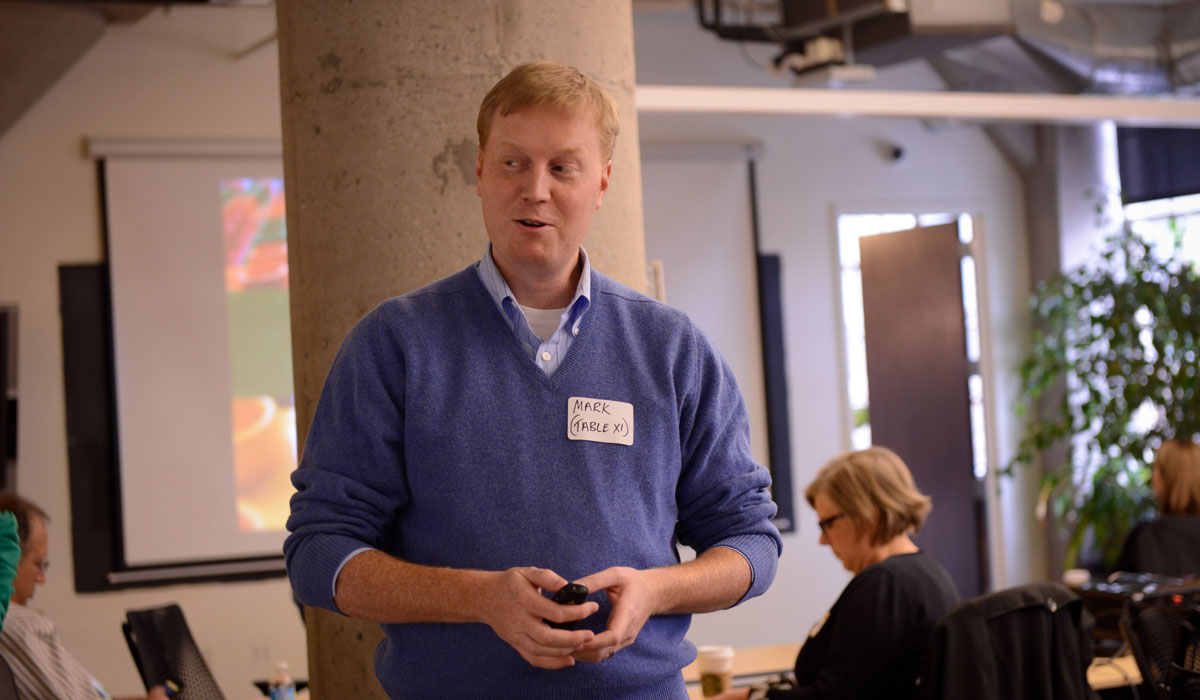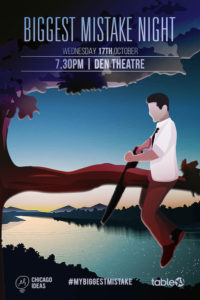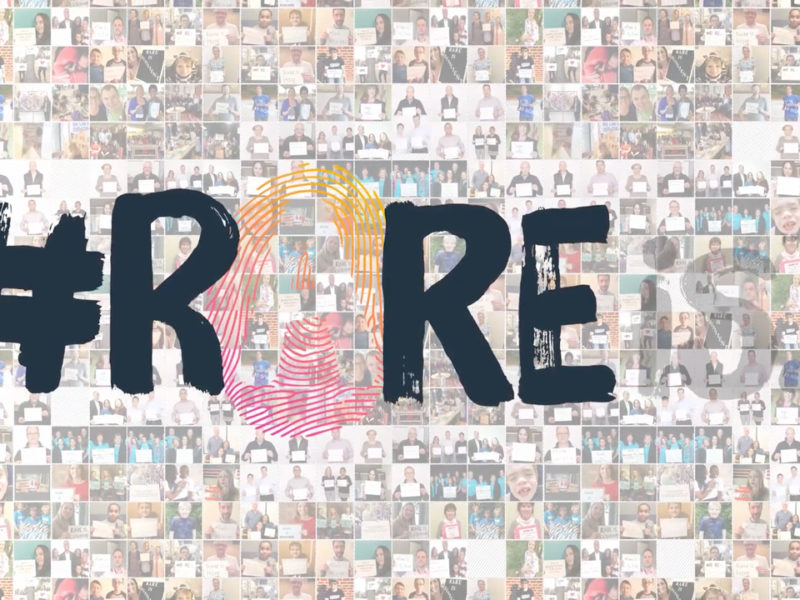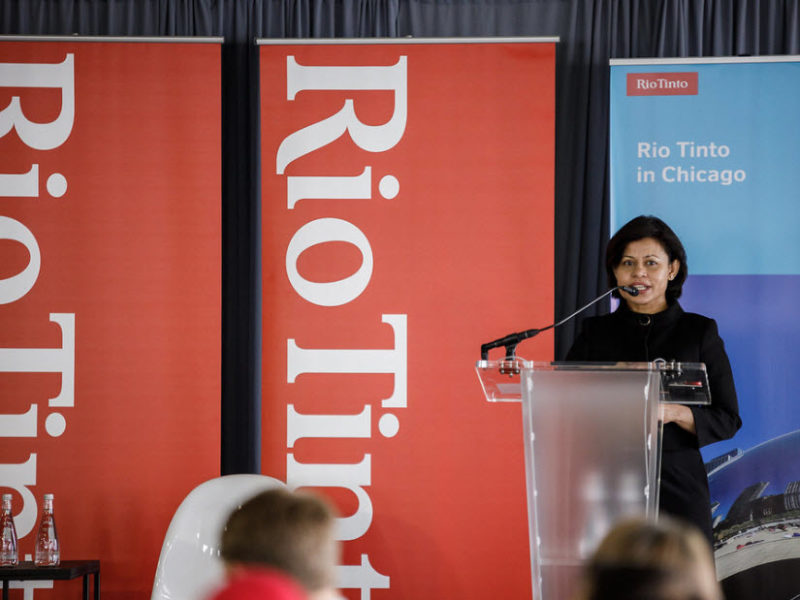
Dare to Fail: How Table XI Embraces the Art of Failure
When innovators and changemakers take the stage to tell their story, they often go step-by-step from one success to the next, stringing together a series of wins that culminated in prestige and accomplishment.
The record of failure and disappointment is often left out. But it’s in the mistakes that the true learning, the true growth, the true innovation takes place.
Chicago Ideas Partner Table XI, a software design company that helps innovate organizations from within by creating custom software solutions, embraces mistakes. By listening to what isn’t working for their clients, they can better understand how to design functional fixes, tailored to each client’s individual needs. It’s part of the fabric of their culture, which is why we teamed up with them during Chicago Ideas Week to explore the power of failure in developing success.
We sat down with Mark Rickmeier, the CEO of Table XI, to talk about failure, about the power of learning from mistakes, and about adapting on the path to success.
Chicago Ideas (CI): How Biggest Mistake Night came to be?
Mark Rickmeier (MR): Innovation doesn’t happen without failure. It is the single greatest teacher and allows for fresh insights with each mistake made. Great innovators don’t try to avoid failure – they try to make new mistakes each time (and quickly learn from them). A quick look at the quotes from our amazing speakers – you’ll see how important failure is to their process:
“Find others to make mistakes with”
“Innovation doesn’t happen without failure”
“You need to look at your mistakes from different perspectives”
Chicago Ideas Week celebrates new ideas, good ideas, and innovation. But we thought, to truly understand innovation, we need to celebrate the bad ideas that got us here too. So we asked some of the smartest innovators in Chicago to take the stage and tell stories of their biggest mistakes and hard-learned failures.
Mark Rickmeier from Table XI.
CI: During a week like Chicago Ideas Week, where big, impactful ideas are celebrated, Table XI challenged us all to think about the things that have gone wrong and explore how we learned from those ideas, too. Why do you think that timing worked so well?
MR: It is easy to hear the speakers at Chicago Ideas Week and think: “They are amazing. I could never do that”.
We find that celebrating failure humanizes each speaker. The bigger their accomplishments, the bigger their mistakes have been that lead to those insights. And it is very refreshing to not hear about all the incredible things they’ve done, but rather the mistakes they’ve learned from and the failures they have survived. We’ve all made mistakes. We just don’t celebrate them enough.
By having each of these speakers talk about their really tough lessons learned, an entirely new kind of dialogue forms in the audience. Rather than people walking up and asking “What’s your name? Where do you work?” (the typical boring intro, etc) people are energized, asking “What big things did you screw up last year???”) That leads to a much deeper connection.
CI: How does Table XI celebrate mistakes in everyday life? Do you try to incorporate this in your company culture?
MR: Table XI is a digital product design and software development company. We help companies to innovate, find new opportunities in their business, and create custom technology solutions to solve their problems (chatbots, mobile applications, web applications, etc). To do that, we need a culture that fosters innovation and creates a safe place for failure and experimentation.
So every quarter when the company gathers together, I will get up and talks about the 3 biggest mistakes I have made since the last gathering (often quite personal and painful lessons learned).
We also publish a company wide radar full of the experiments we are making in our business—everything from new tools we are adopting, new benefits we are rolling out, and changes to our processes and best practices. There are very few sacred cows at Table XI. We enjoy experimentation and like to iterate on our company culture, finding new and better ways to do things.
Kyle Hustedt (The Caberet Project): My Biggest Mistake from Table XI on Vimeo.
CI: What do you hope was the biggest takeaway from Biggest Mistake Night?
MR: The big hope for Biggest Mistake Night is that everyone who attended (both speakers and audience members) has a more honest conversation about innovation and failure. You simply can’t have the former without the latter. Failure shouldn’t be hushed up and dismissed. In the best week for new and good ideas in Chicago, we really hope people will celebrate all of the bad ideas and mistakes we’ve made as well. It is with that kind of brutal honesty and transparency that we can get to know each other much better and learn from each other’s experiences.
Dionna Griffin-Irons (Second City): My Biggest Mistake from Table XI on Vimeo






Virginia A Primack
I love this approach. Even Thomas Edison held this “learning from mistakes” approach. When someone asked him how it was that he didn’t seem discouraged with his inventions that did not succeed, he gladly said, “That’s okay…I know 10,000 things that don’t work.!”